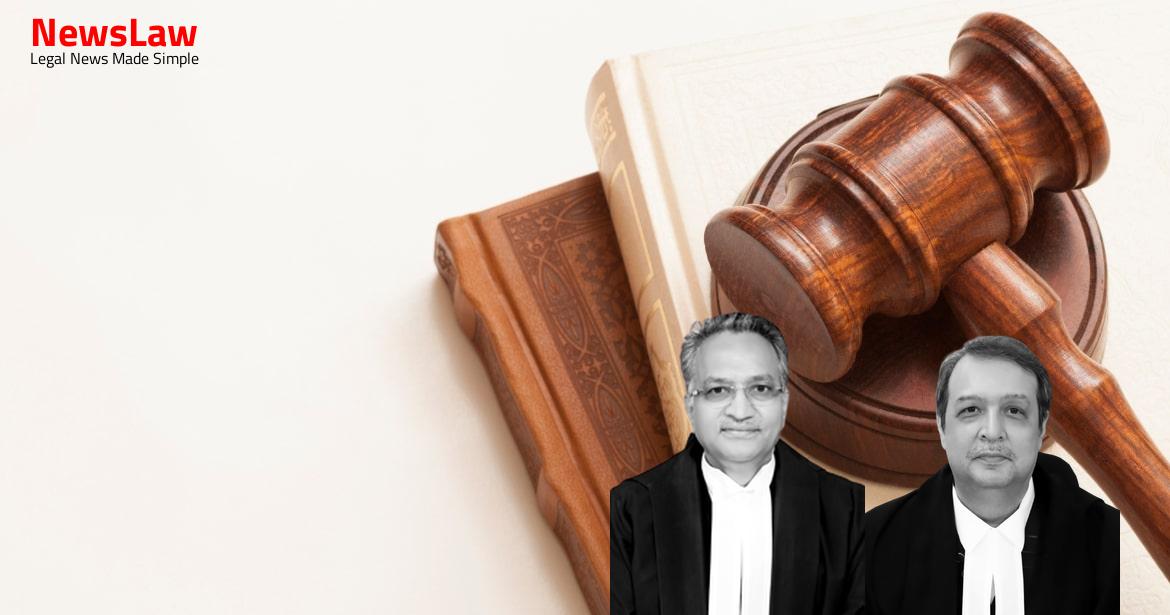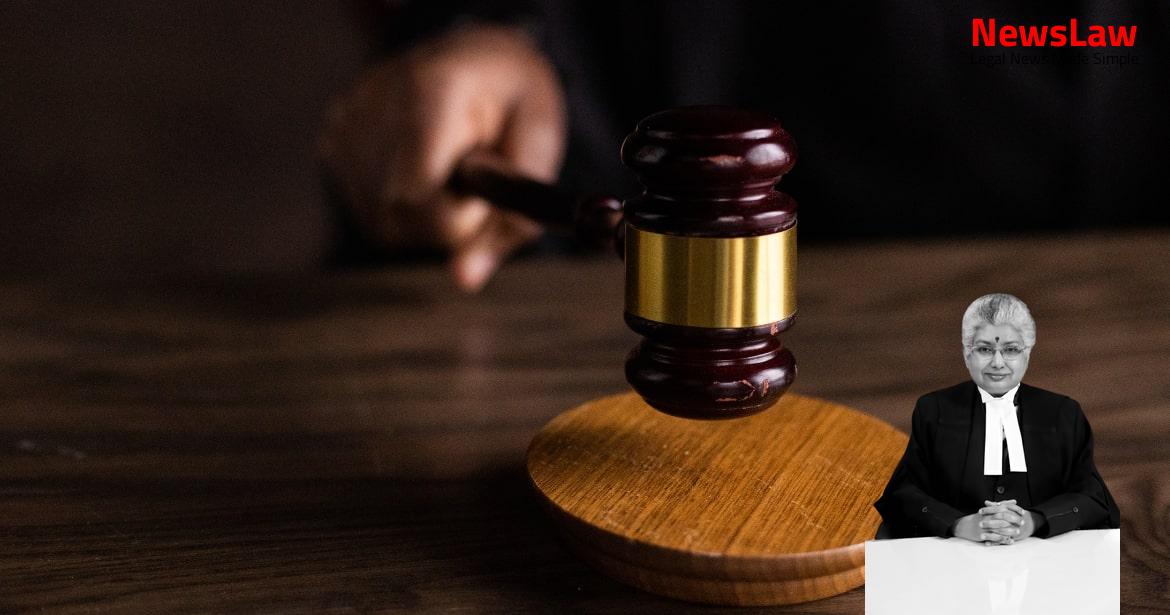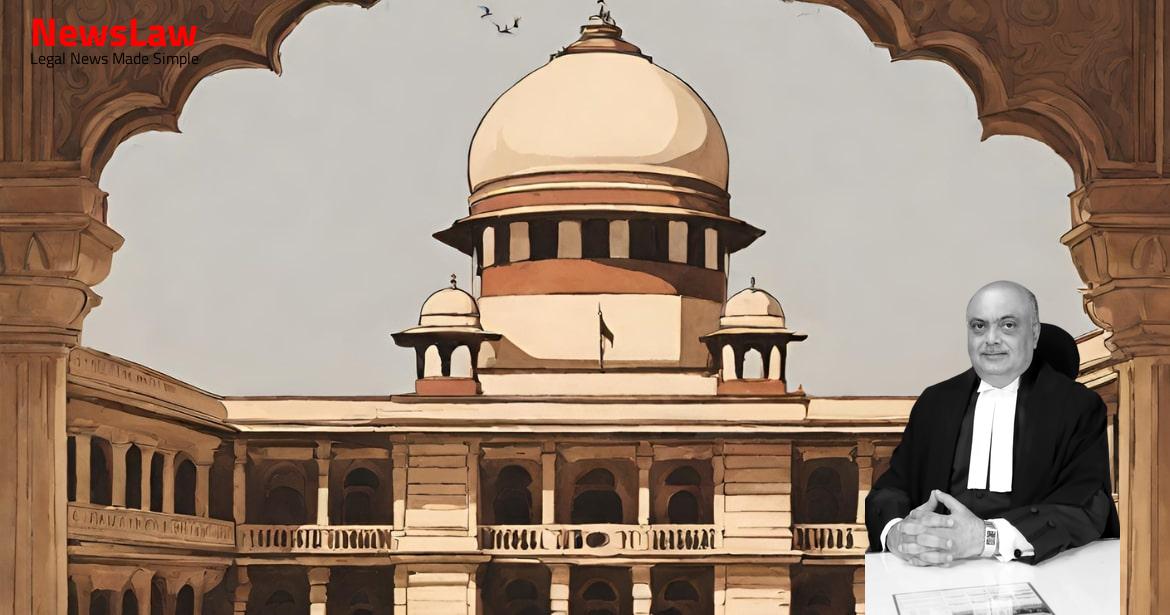Delve into the complex legal analysis conducted by the court in matters of child custody jurisdiction and the welfare of the child. This summary sheds light on the court’s prioritization of the child’s best interests, considering factors such as parental rights, foreign court orders, and the child’s overall well-being. Stay informed about the crucial aspects examined by the court to make decisions that safeguard the welfare of the minors involved in custody disputes.
Facts
- The petitioner and respondent no.2 agreed not to relocate without consent or court permission, with alternating children’s passports.
- Respondent no.2 left for India with children on 17 August 2021 against the itinerary.
- Shared parenting plan of May 2021 laid down clear visitation schedule.
- Allegations of respondent no.2 not abiding by custody orders and evaluation reports.
- Petitioner obtained H1B visa in February 2020 and respondent no.2 misused children as a weapon post-divorce.
- Respondent no.2’s actions led to alienation of petitioner from her children.
- Marriage solemnized in October 2008 in Chennai, India.
- Petitioner moved Emergency Motion on 18 August 2021 to restrain children’s removal from USA.
- Petitioner faced challenges in contacting children post respondent no.2’s actions.
- Respondent no.2’s conduct led to petitioner seeking urgent legal interventions.
- Petitioner sought relief from the court to repatriate children to the USA.
Issue
- Should respondent no.2 go back to the USA with both minor children or hand over custody to petitioner-mother?
- Consideration of directing appellant to hand over custody of minor child Anagh to respondent.
- Determining if it is in the best interest of both minor children to return to the USA.
Arguments
- Petitioner’s father made a complaint to the police regarding the illegal removal of minor children from their parent nation.
- Police could not find the minor children at the residences of Respondent No.4 or Respondent No.5.
- The custody of minor daughter with the respondent no.2 is termed as illegal as it goes against the settlement agreement.
- Respondent no.2 managed to keep custody by flouting US court orders.
- Minor son is an American citizen and ordinarily a resident of the USA.
- Leaving the children alone with the petitioner, who has alleged mental disorders, is deemed dangerous.
- Children’s education is being well taken care of.
- The paramount consideration in cases involving minor children is the welfare of the child.
- Comity of courts, orders by foreign courts, citizenship of parents and child, and other considerations cannot override the child’s welfare.
- If returning the child to a foreign jurisdiction harms the child’s best interests, the court should not do so.
- The mother could travel to India to spend time with the children rather than insisting on bringing the children back to the USA.
- The father should not be deprived of his love, affection, and supervision towards his children in such circumstances.
Also Read: Supreme Court Judgment:
Supreme Court Upholds Benefit of Input Tax Credit in Uttar Pradesh Value Added Tax Act 2008
Analysis
- The judgment highlights the importance of the welfare of the child in custody matters, emphasizing that the child’s best interests should be the paramount consideration.
- It discusses the significance of the relationship between the child and both parents, advocating for regular communication and access to both parents for the child’s healthy development.
- The court acknowledges the psychological impact on children when parents engage in alienating behaviors, leading to feelings of loyalty conflicts and negative effects on the child’s perception of the other parent.
- It addresses the jurisdictional complexities in child custody cases involving multiple courts and the weight given to foreign court orders in determining custody decisions.
- The importance of stability, education, and familiar surroundings for children, especially considering their unique needs and potential for development, is emphasized in the judgment.
- In appointing a guardian for a Hindu minor, the welfare of the minor is the paramount consideration.
- The court must have regard to the personal law of the minor and consider circumstances pointing towards the minor’s welfare.
- The procedure for admission of an application for guardianship is outlined in Section 11.
- The Act does not derogate from any valid power to appoint a guardian under the minor’s applicable law.
- A guardian is defined as a person responsible for the care of a minor’s person, property, or both.
- The court can make interim orders for the protection of the minor and their property.
- The natural guardian of a Hindu minor can act for the minor’s benefit but cannot bind the minor personally.
- The Guardians and Wards Act, 1890, may apply in certain circumstances regarding guardianship.
- The court’s consideration for appointing a guardian should be based on the minor’s welfare, as per the relevant law.
- Requirements for applying for guardianship, jurisdiction of the court, and application procedures are specified in Sections 7-10.
- A minor is defined as per the Indian Majority Act, 1875, as someone who has not reached majority age.
- Natural guardians of Hindu minors are specified, with custody of minors under five usually with the mother.
- If the court determines that a person’s guardianship is not in the minor’s welfare, they cannot claim guardianship rights.
- The Hindu Minority and Guardianship Act, 1956, complements the Guardians and Wards Act, 1890.
- Various statutes give legislative recognition to established principles related to the right of parents over the destinies and lives of their children yielding to considerations of their welfare.
- Factors to consider when deciding whether to conduct a summary or elaborate inquiry in custody cases include the nature and effect of the interim or interlocutory order passed by the foreign court.
- Domestic courts in India can decline the relief of return of a child brought within its jurisdiction based on factors such as the child’s settlement in a new environment, potential harm, objections by a mature child, and more.
- The Court must prioritize the welfare of the child above legal rights of parties when deciding on custody matters.
- A Habeas Corpus petition under Article 226 of the Constitution of India for minor custody is maintainable if the detention is found to be illegal and without legal authority.
- The Court should consider the welfare and interests of the child as the paramount consideration in custody disputes.
- The principle of comity of courts and the best interests of the child must guide the court’s decision in custody matters.
- Foreign court orders should be given due consideration, but the welfare of the child should prevail over other factors.
- In cases of custody involving children removed to a foreign jurisdiction, the court must consider all aspects to ensure the child’s safety and well-being.
- The Court should exercise its jurisdiction in summary or elaborate inquiries based on the circumstances and the promptness of the parties involved, always keeping the best interests of the child in mind.
Decision
- The Court directed the father to apply for a visa to travel to the USA with the two minor children within one week.
- The concerned authority was advised to consider granting the visa in the best interest of the children.
- A request for additional time was made by the father to try to work out an amicable arrangement with the mother.
- The Commissioner/Superintendent of Police was ordered to ensure the immediate handover of children’s custody to the mother.
- The matter was to be revisited in Ohio for the revival of the shared parenting plan.
- If the visa is declined for the father, the mother was directed to travel to India to pick up the children and return to the USA.
- Strict instructions were given that once the visa is granted, the father must travel to the USA within one week.
- Any impediment to compliance would allow the mother to seek appropriate directions from the Court.
- The Registry was directed to report compliance after four weeks.
- Any interference by the father or his family members would be viewed as contempt of court.
Case Title: RAJESWARI CHANDRASEKAR GANESH Vs. THE STATE OF TAMIL NADU (2022 INSC 721)
Case Number: W.P.(Crl.) No.-000402 / 2021



